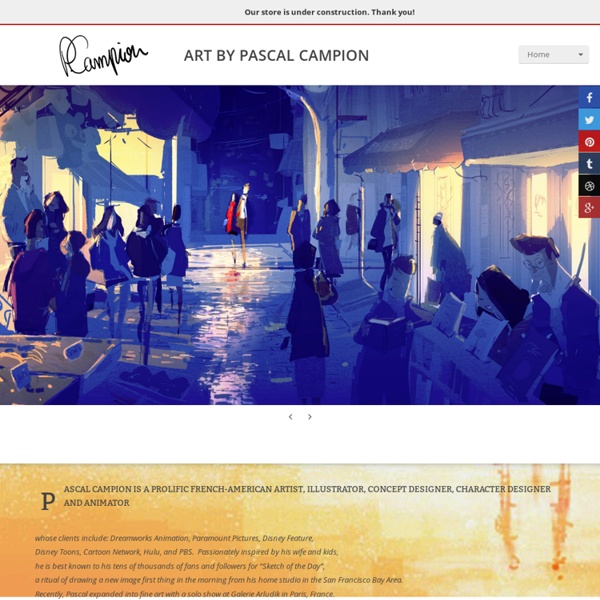



Рисовать онлайн. Обзор рисовалок и редакторов. Прямо на этих страницах ты можешь рисовать онлайн. Представлены самые разные рисовалки и профессиональные растровые и векторные графические редакторы в онлайн исполнении, сервисы для совместного рисования и создания анимации. Многие умеют сохранять ваши рисунки на вашем компьютере, некоторые умеют проигрывать процесс рисования. Le voyage de Chihiro (Miyazaki) - Buta Connection Longs métrages > Le voyage de Chihiro « Pour ceux qui ont eu 10 ans, et pour ceux qui auront 10 ans » (H. Miyazaki) Le voyage de Chihiro nous conte l'histoire de Chihiro, une petite fille japonaise de 10 ans dont les parents sont transformés en cochon. Elle se retrouve livrée à elle-même dans un monde de dieux, d'esprits et de monstres, une ville de bains régie par une sorcière. Dans ce lieu étrange et fantastique, les humains inutiles sont changés en animaux ou disparaissent.
Mr Porter : Amy Harris Illustration & Set Design +44 (0) 7779 752653hello@amy-harris.co.uk Twitter: @amy_creates © Amy Harris Mr Porter Beach Vacation loish blog Super Awesome Sylvia's WaterColorBot The WaterColorBot is a brand-new project from Evil Mad Scientist Laboratories and Super Awesome Sylvia — a friendly art robot that moves a paint brush to paint your digital artwork onto paper, using a set of watercolor paints. Super Awesome Sylvia's WaterColorBot is launching now, and is exclusively available through Kickstarter ! Thus far, we have seen our Kickstarter campaign featured on: CNET , Laughing Squid , Adafruit , Hack Things , Tech Hive , Boing Boing , Engadget , Engineering.com , Tech Crunch , Tech Crunch Japan , Jeruknipis , Geeky Gadgets , golem.de , Gizmodo Germany , Kickstarter Newsletter , BinaryCSE , TechnaBob , Gizmag , Product Design & Development ( 1 , 2 ), KeerBot , Prosthetic Knowledge , Faveoly , Cool Things , Tech Age Kids and DNA India The WaterColorBot itself has also been seen on:
illustrations — Caroline Pedler prev / next RYAN LANG PORTFOLIO Games – Amanita Design Amanita Design Creaks Meet Your New Neighbours CHUCHEL Comedy Adventure Game Samorost 3 Full-length Adventure Game Botanicula Full-length Adventure Game Machinarium Full-length Adventure Game Samorost 2 Point and Click Adventure Game Samorost 1Point and Click Adventure Web Game Questionaut Short Web Game for BBC The Quest For The Rest Short Web Game for The Polyphonic Spree Rocketman Short Web Game for Nike
Anton Van hertbruggen КАК НАУЧИТЬСЯ РИСОВАТЬ. САМОСТОЯТЕЛЬНО.ПУТЬ К ИСКУССТВУ Новая G-Shock телефон на CES 2012 Casio has unveiled a new G-Shock cellphone at CES 2012. This new G-Shock-tough phone is rated for a 10 foot (3 meters) high drop impact, 1 ATM (10 meters) waterproof depth and it can hold up to one ton of weight. It has a chunky design that looks like they wrapped a resin G bezel around the edge of the phone. The Art of LA Johnson: Illustration, Posters, Comics, Animation